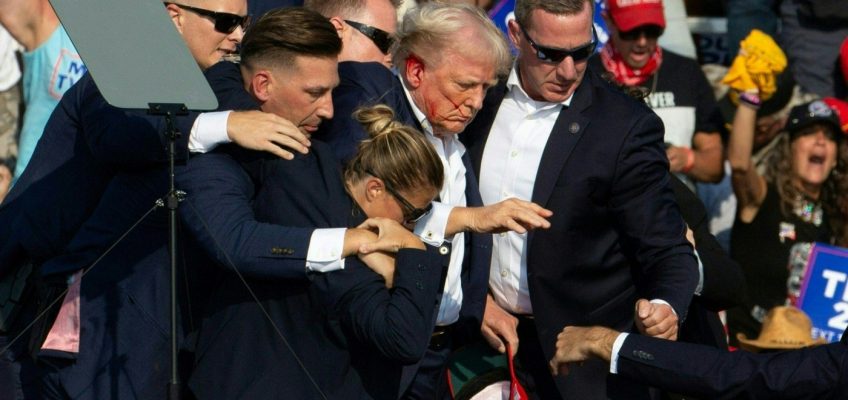Davey Alba | (TNS) Bloomberg News
Moments after former President Donald Trump was escorted off the stage after shots were fired at a campaign rally in Pennsylvania, unfounded claims about the event swirled on major social media platforms.
The posts, including some written by U.S. politicians holding elected office, claimed without proof that President Joe Biden had ordered an apparent shooting at the rally. Others baselessly stated that the incident was staged, or circulated posts misidentifying the shooter.
In the aftermath of major news, the facts of an event are not always immediately clear. Law enforcement, including the Secret Service, the FBI, Pennsylvania state police and the Justice Department have said they are continuing to investigate the shooting, including the possibility it was an assassination attempt.
Experts urged caution before sharing unsubstantiated information.
“In any fast developing event, there is inevitably a high influx of false or unverified information, especially on social media,” said Graham Brookie, senior director of the Atlantic Council’s Digital Forensic Research Lab, which studies social media misinformation.
On X, several politicians accused Biden or his campaign of being “directly” behind the apparent shooting, without providing evidence.
Georgia Rep. Mike Collins posted simply, “Joe Biden sent the orders,” while Ohio Sen. J.D. Vance, a top contender for Trump’s vice-presidential running mate, wrote on X that the Biden campaign’s rhetoric “led directly to President Trump’s attempted assassination.”
Texas Rep. Ronny Jackson pointed to unnamed figures on the left whom he accused of being “directly responsible” for the events at Trump’s campaign rally.
Collins, Vance and Jackson did not immediately respond to requests for comment. Their posts on X altogether garnered more than 7.3 million views on Saturday evening, according to data from the social media platform.
As of late Saturday evening, the shooter’s name had not been released to the public though NBC News said authorities have tentatively identified the man as approximately 20 years old and from Pennsylvania.
Earlier posts on X, Telegram and Gab, forums favored by many on the far-right, misidentified the shooter as a man called Mark Violets, calling him a “known Antifa extremist” that refers to the loosely organized leftist movement. According to NBC News, the misidentified person circulated in posts that included a photo was Marco Violi, an Italian YouTuber who has denied any involvement in the shooting.
Immediately after the shooting, hundreds of thousands of posts reaching millions of views circulated on X claiming the shooting at the Pennsylvania rally was “staged,” according to data from the social media platform — without offering any evidence. Despite being quickly debunked, many of the posts remained live on the platform.
In the past year, content moderation efforts on major social media platforms have been weakened, as social media analysis tools have been shelved by Meta Platforms Inc. and others, and efforts from academic teams tracking misinformation, such as the Stanford Internet Observatory, have wound down.
(Daniel Zuidijk contributed to this report.)
___
©2024 Bloomberg L.P. Visit bloomberg.com. Distributed by Tribune Content Agency, LLC.




